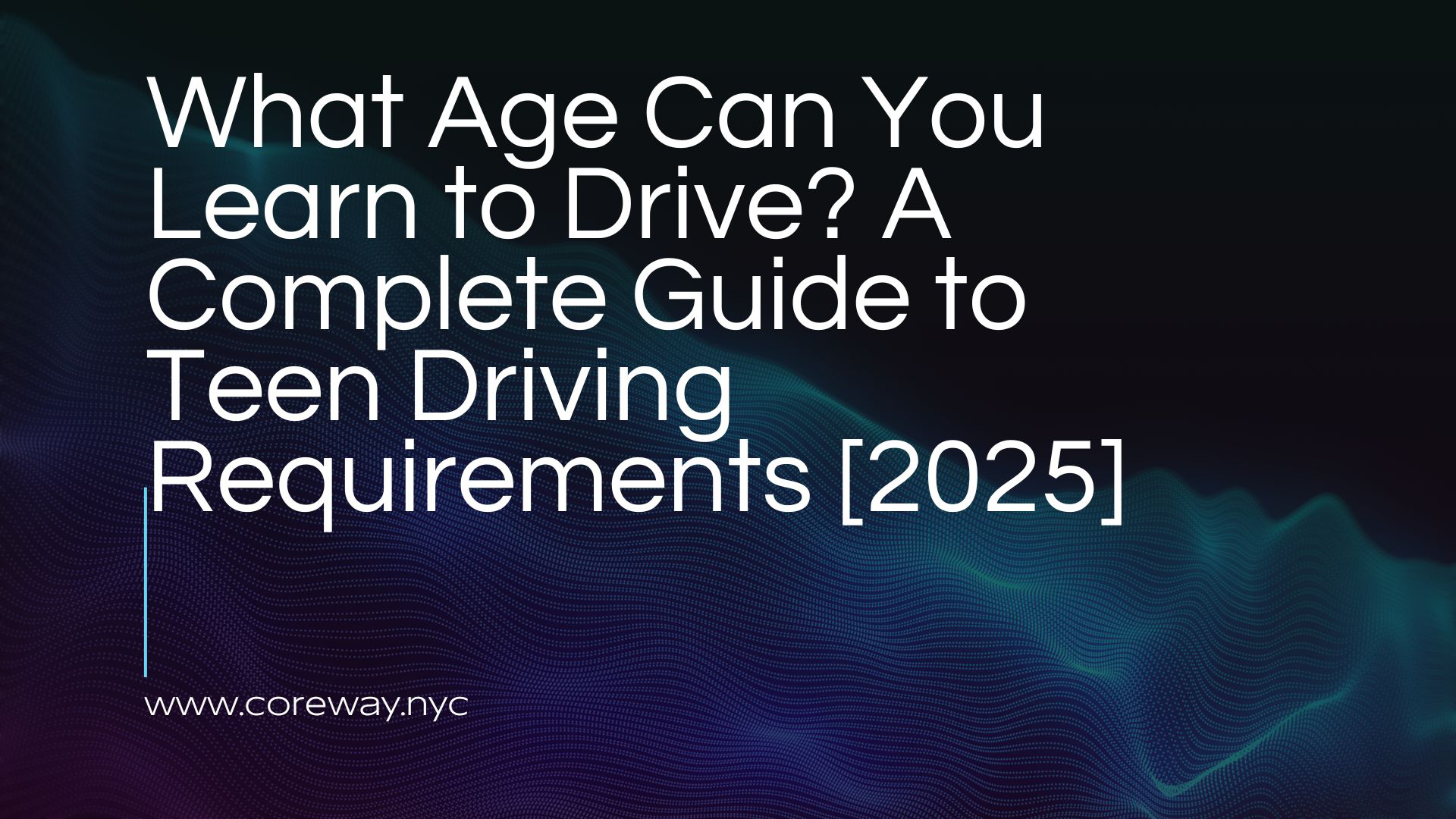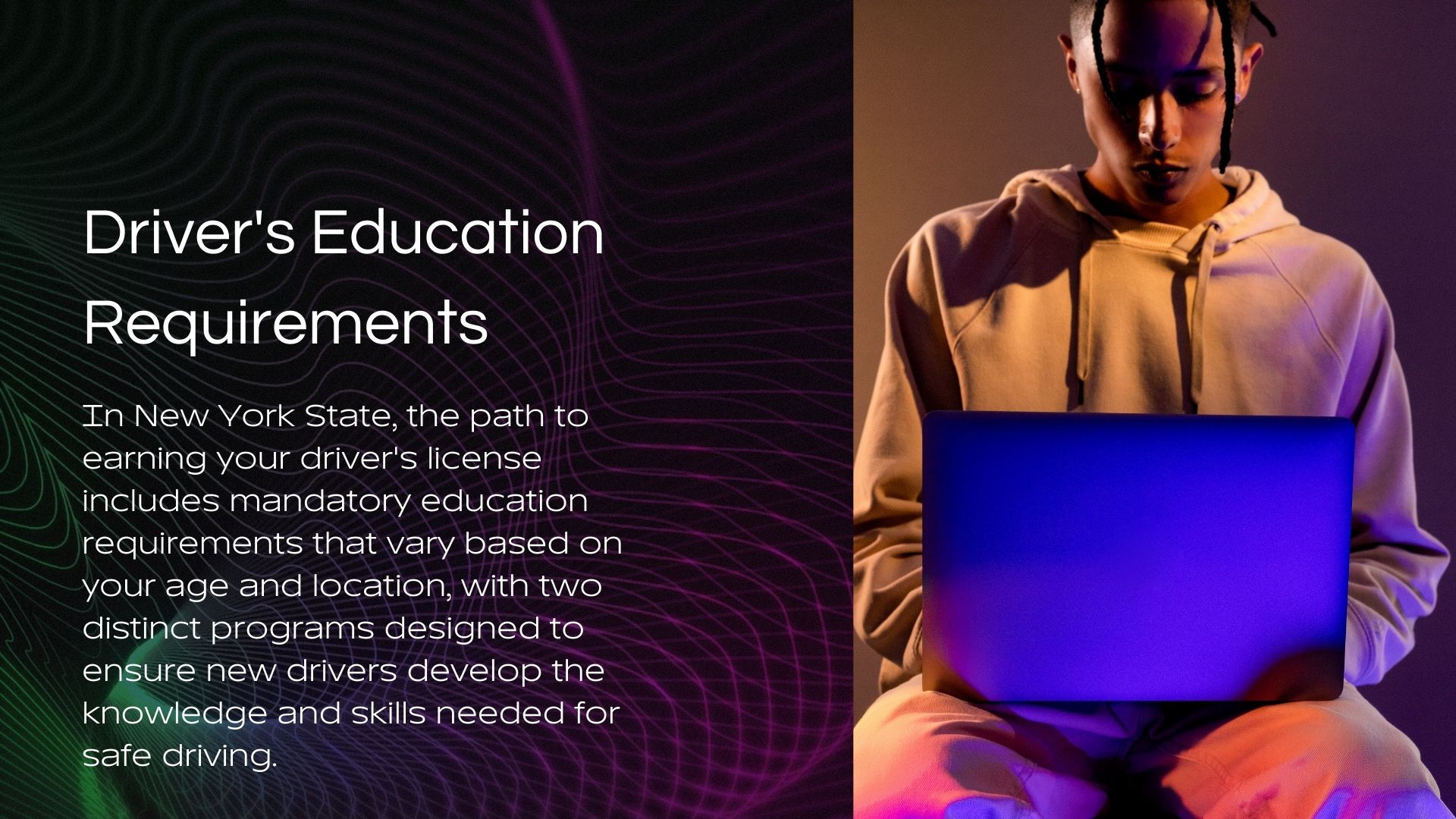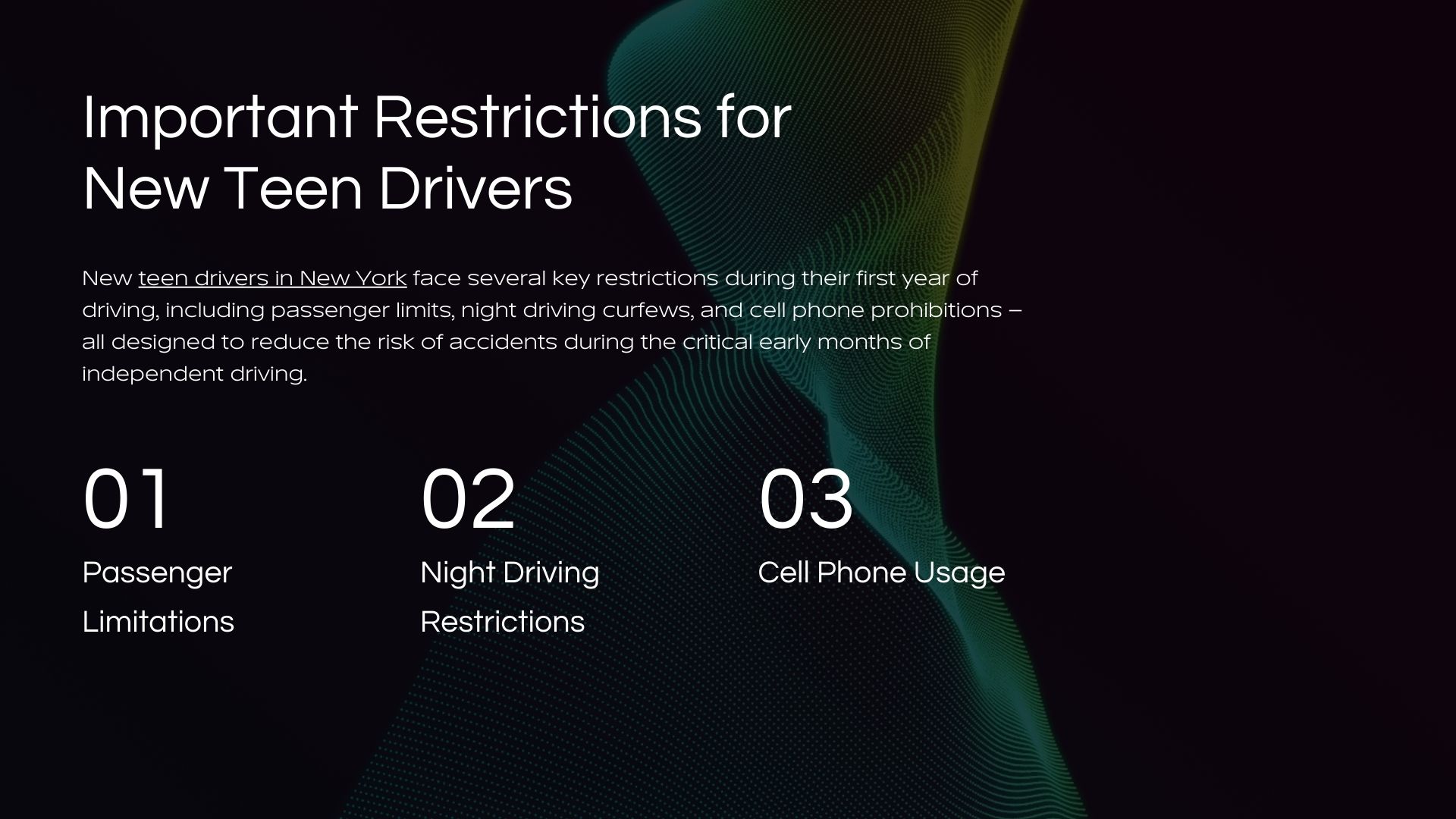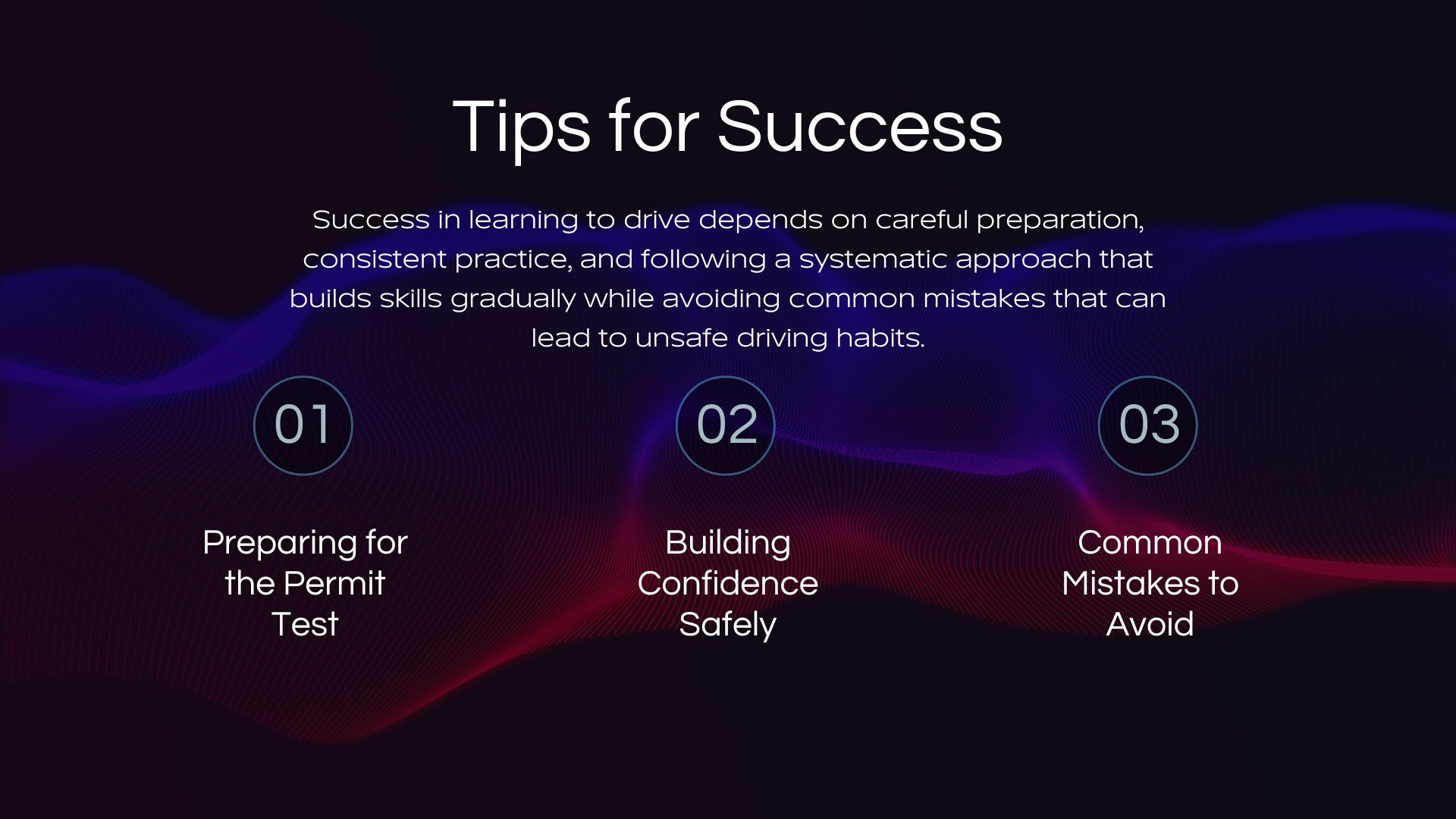What Age Can You Learn to Drive? A Complete Guide to Teen Driving Requirements [2026]

Table of Contents
- The Ideal Age to Start Learning Driving Skills
- Understanding Graduated Driver Licensing (GDL)
- New York State Driving Age Requirements
- Driver's Education Requirements
- Important Restrictions for New Teen Drivers
- Parent's Role in Teaching Teens to Drive
- Safety Considerations and Statistics
- Tips for Success
As a driving education instructor with over 15 years of experience in New York, I've guided countless teens through their journey to becoming licensed drivers. One of the most common questions I hear from both parents and prospective young drivers is: "What's the right age to start learning to drive?"
The answer isn't as straightforward as you might think. While most states have specific age requirements for obtaining a learner's permit, the process of learning to drive can – and should – begin much earlier. Let's explore everything you need to know about the appropriate age to start driving education and the requirements that follow.
The Ideal Age to Start Learning Driving Skills
While most states set 16 as the minimum age for obtaining a learner's permit, the journey to becoming a skilled driver can – and should – begin much earlier in life. Research shows that children who are gradually exposed to driving concepts and road safety from a young age develop better awareness and decision-making skills when they finally get behind the wheel.
Early Preparation (Ages 5-12)
Contrary to popular belief, driving education doesn't start when a teen gets their learner's permit. The foundation for safe driving begins much earlier. During these formative years, children can develop crucial skills and awareness that will benefit them later:
- Observational Learning: Children naturally observe their parents' driving habits
- Basic Traffic Knowledge: Understanding traffic signals and road signs
- Safety Awareness: Learning about seatbelt usage and basic car safety
- Spatial Awareness: Developing an understanding of distance and movement
Parents play a crucial role during this phase by modeling good driving behavior and explaining basic traffic concepts in age-appropriate ways.
Pre-permit Preparation (Ages 13-14)
The early teenage years mark an important transition in driving education. While teens can't legally drive on public roads yet, they can begin more focused preparation:
- Basic vehicle mechanics understanding
- Parking lot practice (on private property only)
- Development of responsibility and decision-making skills
- Introduction to traffic laws and regulations
Understanding Graduated Driver Licensing (GDL)
New York State, like most states, implements a Graduated Driver Licensing system to help young drivers gain experience gradually. This system has proven highly effective in reducing teen driving accidents and fatalities.
The Three Stages of GDL
- Learner's Permit Stage
- Minimum age: 16 in New York
- Requires supervision by licensed driver
- Mandatory practice hours
- Intermediate/Restricted License
- Junior license with limited privileges
- Passenger and time restrictions
- Geographic limitations (especially in NYC)
- Full Privilege License
- Available at age 17 with driver's education
- Otherwise available at age 18
- No restrictions on driving
Call Us Today 6AM-10PM
Or fill out the form 24/7
Our team is here to guide you with promotions, instructor availability, and the best training package for you.
New York State Driving Age Requirements
In New York, driving privileges vary significantly based on geographic region:
|
Region |
Permit Age |
Restricted License |
Full License |
|
Upstate NY |
16 |
16.5 |
17-18 |
|
NYC |
16 |
17 |
18 |
|
Long Island |
16 |
16.5 |
17-18 |
Regional Restrictions
Upstate New York:
- Daytime driving allowed without supervision (5 AM - 9 PM)
- Limited to one passenger under 21
- Night driving requires supervision
New York City:
- No driving with junior license
- Must wait until age 18 or complete driver's education
- Stricter supervision requirements
Long Island:
- Supervised driving only except for work/school
- Special restrictions for Nassau and Suffolk counties
- Additional passenger limitations
Call Us Today 6AM-10PM
Or fill out the form 24/7
Our team is here to guide you with promotions, instructor availability, and the best training package for you.
Driver's Education Requirements

In New York State, the path to earning your driver's license includes mandatory education requirements that vary based on your age and location, with two distinct programs designed to ensure new drivers develop the knowledge and skills needed for safe driving.
New York offers two primary paths for driver education:
Pre-licensing Course (5-Hour Course)
- Mandatory for all new drivers
- Covers basic safety principles
- Traffic laws and regulations
- Alcohol and drug awareness
Comprehensive Driver Education
- 24 hours of classroom instruction
- 24 hours of behind-the-wheel training
- Required for early advancement to full license
- Provides insurance reduction benefits
Important Restrictions for New Teen Drivers

New teen drivers in New York face several key restrictions during their first year of driving, including passenger limits, night driving curfews, and cell phone prohibitions – all designed to reduce the risk of accidents during the critical early months of independent driving.
Passenger Limitations
- Maximum one passenger under 21 (family members exempt)
- Front seat reserved for supervising driver
- All passengers must wear seatbelts
Night Driving Restrictions
- No unsupervised driving 9 PM - 5 AM
- Exceptions for work and school
- Must carry appropriate documentation
Cell Phone Usage
- Complete ban on handheld devices
- First violation: 120-day suspension
- Second violation: minimum one-year revocation
Parent's Role in Teaching Teens to Drive
As both a driving instructor and parent, I cannot emphasize enough the importance of parental involvement in the learning process.
Creating a Structured Learning Plan
- Start with empty parking lots
- Progress to quiet residential streets
- Gradually introduce more challenging conditions
- Practice in various weather conditions
- Document practice hours
Setting Ground Rules
- Clear consequences for violations
- Written parent-teen driving agreement
- Regular progress evaluations
- Additional restrictions as needed
Safety Considerations and Statistics
Understanding the risks helps emphasize the importance of proper training:
- Teen drivers are 3x more likely to be in fatal crashes
- Risk increases with each additional teenage passenger
- Most accidents occur during the first six months of independent driving
Risk Reduction Strategies
- Extended supervised practice
- Gradual exposure to challenging conditions
- Clear rules about passengers and night driving
- Regular skill assessments
- Ongoing education and feedback
Tips for Success

Success in learning to drive depends on careful preparation, consistent practice, and following a systematic approach that builds skills gradually while avoiding common mistakes that can lead to unsafe driving habits.
Preparing for the Permit Test
- Study the driver's manual thoroughly
- Take practice tests online
- Review road signs and signals
- Understand right-of-way rules
Building Confidence Safely
- Start in low-stress environments
- Increase difficulty gradually
- Practice specific skills repeatedly
- Maintain open communication about concerns
Common Mistakes to Avoid
- Rushing the learning process
- Skipping fundamental skills
- Ignoring weather conditions
- Overestimating abilities
- Neglecting vehicle maintenance knowledge
The journey to becoming a safe, licensed driver is a gradual process that begins long before the legal driving age. While New York State sets 16 as the minimum age for a learner's permit, the foundation for safe driving should be laid much earlier.
Remember:
- Start building awareness early
- Follow the graduated licensing system
- Complete proper driver's education
- Maintain extensive supervised practice
- Prioritize safety over convenience
The most successful young drivers are those who take advantage of every learning opportunity, starting well before they reach driving age. Whether you're a parent planning ahead or a teen eager to begin driving, understanding and following these guidelines will help ensure a safe and successful transition to independent driving.
Call Us Today 6AM-10PM
Or fill out the form 24/7
Our team is here to guide you with promotions, instructor availability, and the best training package for you.
Frequently asked Questions
-
What is the minimum age to start driving school in New York?
In New York, you must be at least 16 years old to enroll in a driver's education course. However, the pre-licensing course (5-hour course) can be taken once you have your learner's permit, which is also available at age 16.
-
Can I start learning to drive before getting my permit?
Yes, you can learn basic driving concepts and practice on private property under supervision before getting your permit. However, you cannot legally drive on public roads until you obtain your learner's permit at age 16.
-
Do I need to take driver's education in New York?
If you're under 18, you must complete either a pre-licensing course (5-hour course) or a state-approved driver's education course to get your license. The comprehensive driver's education course allows you to get your full license at 17 instead of waiting until 18.
-
What restrictions apply to new teen drivers in New York City?
Teen drivers with junior licenses (Class DJ) cannot drive within the five boroughs of New York City under any circumstances. You must either wait until age 18 or complete a state-approved driver's education course to drive in NYC.
-
How many supervised driving hours do I need in New York?
While New York State doesn't specify a minimum number of supervised driving hours, it's recommended to get at least 50 hours of supervised practice, including 15 hours of night driving, before taking your road test.
-
Can I drive outside New York State with a junior license?
Yes, you can drive in other states with your New York junior license if it's allowed by that state's laws. However, you must follow both New York's restrictions and the restrictions of the state you're driving in.
-
What happens if I break the passenger restriction rules?
Violating passenger restrictions can result in your junior license being suspended for 60 days on the first offense. Multiple violations can lead to longer suspensions or license revocation.
-
At what age can I get a full (unrestricted) license in New York?
You can get a full license at:
- Age 17 if you complete a state-approved driver's education course
- Age 18 automatically, regardless of driver's education completion -
Can I practice driving in a parking lot without a permit?
You can only practice driving on private property with the owner's permission. Public parking lots, even when empty, are considered public property and require a valid learner's permit.
-
What are the penalties for using a cell phone while driving with a junior license?
For junior license holders, the first cell phone violation results in a 120-day license suspension. A second violation within six months of getting your license back results in a minimum one-year license revocation.
 English
English Spanish
Spanish 

